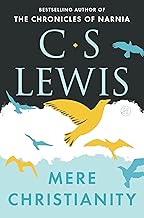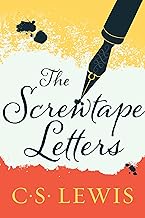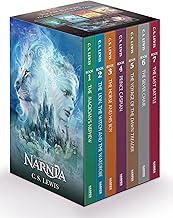
How to Read C.S. Lewis's Books on Best books
How to Read C.S. Lewis's Books on Best Books
Estimated Reading Time: 10-12 minutes
Introduction
C.S. Lewis, a towering figure in 20th-century literature and theology, is best known for his profound insights into faith, morality, and the human condition. Born in 1898 in Belfast, Northern Ireland, Lewis's journey from atheism to Christianity profoundly influenced his writing. His works, steeped in philosophical inquiry and imaginative storytelling, explore the complexities of belief and the nature of good and evil.
Lewis's perspective on "Best books" is unique and valuable due to his ability to blend rigorous intellectual discourse with accessible language. His writings resonate with readers from diverse backgrounds, making complex philosophical concepts approachable. The historical and cultural context of his work—emerging from the backdrop of World War II and the rise of secularism—adds depth to his exploration of morality and spirituality.
Why C.S. Lewis's Perspective Matters
C.S. Lewis's approach to literature and philosophy stands out for several reasons. First, his ability to articulate the Christian faith in a rational and relatable manner has made him a key figure in apologetics. Unlike many of his contemporaries, Lewis did not shy away from addressing the doubts and struggles of modern life. His insights into the human psyche and moral dilemmas provide a framework for understanding the complexities of existence.
Moreover, Lewis's use of allegory and narrative—especially in works like "The Chronicles of Narnia"—allows him to communicate profound truths in a way that resonates with both children and adults. His lasting impact is evident in the continued relevance of his ideas in contemporary discussions about faith, ethics, and literature.
Overview of Recommended Books
Mere Christianity
Overview: "Mere Christianity" is a compilation of a series of radio talks Lewis delivered during World War II. The book aims to present the core tenets of Christianity in a way that is accessible to both believers and skeptics. Lewis argues for the rationality of faith and the moral framework that Christianity provides.
Main Themes and Arguments:
- The moral law: Lewis posits that the existence of a universal moral law suggests a higher power.
- Christian behavior: He emphasizes that true Christianity is not merely about belief but also about living out one's faith.
- The nature of God: Lewis explores the characteristics of God, including His goodness and justice.
Historical Context and Significance: Written during a time of global turmoil, "Mere Christianity" served as a beacon of hope and clarity. It addressed the existential questions of the era, providing a moral compass amidst chaos.
Key Insights and Takeaways:
- The Moral Argument: Lewis's assertion that moral values are inherent and universal challenges the relativistic views of morality prevalent today.
- Faith and Reason: The balance between faith and reason encourages readers to engage intellectually with their beliefs.
- Practical Christianity: Lewis's call for Christians to embody their faith through actions remains relevant in discussions about social justice and ethics.
Why Read This Book: "Mere Christianity" is essential for anyone seeking to understand the foundational aspects of Christian belief. It is particularly beneficial for those grappling with questions of faith and morality, as well as for readers interested in philosophical arguments for the existence of God.
The Screwtape Letters
Overview: In "The Screwtape Letters," Lewis presents a fictional correspondence between a senior demon, Screwtape, and his nephew, Wormwood, who is tasked with tempting a human. This satirical work explores the nature of temptation and the spiritual battles individuals face.
Main Themes and Arguments:
- The nature of evil: Lewis delves into how evil operates subtly in everyday life.
- The importance of spiritual vigilance: The letters emphasize the need for awareness and resistance against temptation.
- The complexity of human nature: Lewis portrays humans as both flawed and redeemable, highlighting the struggle between good and evil.
Historical Context and Significance: Written during World War II, this book reflects the moral ambiguities of the time. It serves as a commentary on the nature of evil in a world marked by conflict and suffering.
Key Insights and Takeaways:
- Subtlety of Temptation: The book illustrates how temptation often masquerades as mundane distractions, urging readers to remain vigilant.
- Spiritual Warfare: Lewis's depiction of the spiritual battle encourages readers to recognize their own struggles and seek strength in faith.
- The Value of Community: The importance of fellowship and support in resisting temptation is a timeless lesson for readers.
Why Read This Book: "The Screwtape Letters" offers a unique perspective on the human condition and the nature of evil. It is particularly valuable for those interested in spiritual growth and understanding the complexities of moral choices.
The Chronicles of Narnia
Overview: "The Chronicles of Narnia" is a series of seven fantasy novels that transport readers to the magical land of Narnia. Through allegorical storytelling, Lewis explores themes of sacrifice, redemption, and the battle between good and evil.
Main Themes and Arguments:
- The nature of sacrifice: Central to the series is the theme of selfless love, epitomized in the character of Aslan.
- The quest for redemption: Characters undergo significant transformations, reflecting the Christian narrative of salvation.
- The battle between good and evil: The series encapsulates the struggle between light and darkness in a way that is both engaging and thought-provoking.
Historical Context and Significance: Written in the mid-20th century, the series reflects the post-war desire for hope and renewal. Its allegorical elements resonate with the Christian narrative, making it a beloved classic for readers of all ages.
Key Insights and Takeaways:
- The Power of Sacrifice: The portrayal of Aslan's sacrifice serves as a powerful reminder of the Christian concept of redemption.
- Moral Choices: Characters face moral dilemmas that encourage readers to reflect on their own choices and values.
- Imagination and Faith: The imaginative world of Narnia invites readers to explore faith in a creative and engaging manner.
Why Read This Book: "The Chronicles of Narnia" is essential for readers of all ages, offering profound moral and spiritual lessons wrapped in enchanting storytelling. It is particularly beneficial for those interested in allegory and the intersection of faith and literature.
How These Books Complement Each Other
Each of Lewis's works addresses different aspects of the theme of "Best books." "Mere Christianity" lays the philosophical groundwork for understanding faith, while "The Screwtape Letters" provides insight into the challenges of living a moral life. Finally, "The Chronicles of Narnia" illustrates these concepts through narrative and allegory. Together, they create a comprehensive understanding of Lewis's views on morality, faith, and the human experience.
Who Would Benefit from Reading These Books
These works are ideal for a diverse audience:
- Students and Academics: Those studying literature, theology, or philosophy will find rich material for analysis.
- General Readers: Anyone interested in exploring the intersections of faith, morality, and literature will benefit from Lewis's insights.
- Professionals Seeking Practical Wisdom: Individuals in fields requiring ethical decision-making can draw from Lewis's moral framework.
- Anyone Looking for Personal Growth: Readers seeking self-improvement and spiritual growth will find valuable lessons in these texts.
Recommended Reading Order
- Start with: Mere Christianity - This foundational text provides the philosophical basis for understanding Lewis's views on faith and morality.
- Continue with: The Screwtape Letters - This engaging exploration of temptation and moral choices builds on the ideas presented in Mere Christianity.
- Advanced reading: The Chronicles of Narnia - This imaginative series offers a narrative exploration of the themes discussed in the previous works, making it a fitting conclusion to the reading journey.
Tips for Getting the Most Out of Each Book:
- Take notes on key themes and insights as you read.
- Reflect on how Lewis's ideas apply to contemporary issues.
- Discuss the texts with others to deepen your understanding.
Conclusion
C.S. Lewis's contributions to the theme of "Best books" are both profound and enduring. His ability to articulate complex ideas in an accessible manner makes his works invaluable for readers seeking to explore faith, morality, and the human experience. I encourage you to delve into these texts, engage with their ideas, and reflect on their relevance in your own life. The timeless wisdom found in Lewis's writings continues to inspire and challenge readers, inviting us all to consider the deeper questions of existence.
Tags: #C.S. Lewis #Best books #Philosophy #ReadingGuide #ClassicLiterature #Wisdom
Featured Books

Mere Christianity
by C.S. Lewis
Published: 1952
"C.S. Lewis is the ideal persuader for the half-convinced, for the good man who would like to be a Christian but finds his intellect getting in the way." — Anthony Burgess, New York Times Book ReviewOur moral consciousness and moral judgements are proof to the human race that a moral being exists—God. Mere Christianity explores the core beliefs of Christianity by providing an unequaled opportunity for believers and nonbelievers alike to hear a powerful, rational case for the Christian faith. A brilliant collection, Mere Christianity remains strikingly fresh for the modern reader and at the same time confirms C. S. Lewis’s reputation as one of the leading writer and thinkers of our age. The book brings together Lewis’ legendary broadcast talks during World War II. Lewis discusses that everyone is curious about: right and wrong, human nature, morality, marriage, sins, forgiveness, faith, hope, generosity, and kindness. Read more

The Screwtape Letters
by C.S. Lewis
Published: 1941
A Masterpiece of Satire on Hell’s Latest Novelties and Heaven’s Unanswerable AnswerC.S. Lewis’s The Screwtape Letters has entertained and enlightened readers the world over with its sly and ironic portrayal of human life and foibles from the unique vantage point of Screwtape, a highly placed assistant to “Our Father Below.” At once wildly comic, deadly serious, and strikingly original, C.S. Lewis gives us the correspondence of the wordly-wise devil to his nephew Wormwood, a novice demon in charge of securing the damnation of an ordinary young man. The Screwtape Letters is the most engaging account of temptation—and triumph over it—ever written. Read more

The Chronicles of Narnia
by C.S. Lewis
Published: 1950
Experience The Chronicles of Narnia in its entirety with this must-have paperback box set, complete with the seven books in C. S. Lewis's classic fantasy series. C. S. Lewis's The Chronicles of Narnia has captivated readers of all ages for over sixty years, enchanting them with fantastical talking creatures, epic battles between good and evil, and magical doorways into new lands.This box set includes mass market editions of all seven titles in The Chronicles of Narnia, in chronological order: The Magician's Nephew; The Lion, the Witch and the Wardrobe; The Horse and His Boy; Prince Caspian; The Voyage of the Dawn Treader; The Silver Chair; and The Last Battle—with the original black-and-white interior illustrations by Pauline Baynes and cover art by Cliff Nielsen. Read more